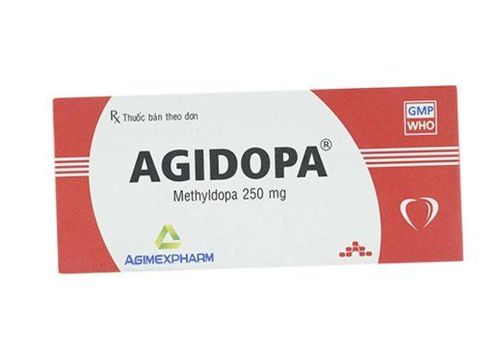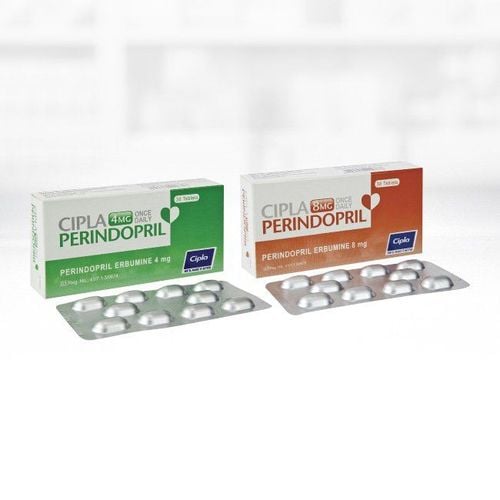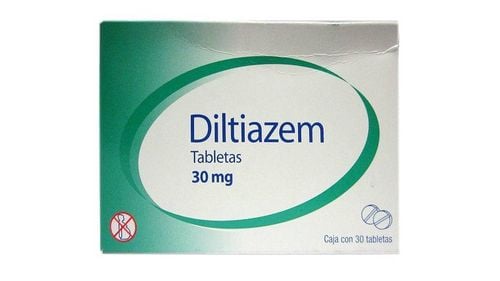This is an automatically translated article.
Mibelet is a selective beta blocker. It is used to treat idiopathic hypertension and stable chronic heart failure in patients over 70 years of age. The following article provides some information on dosage and precautions when using Mibelet.
1. What is Mibelet 5mg?
Mibelet has the main ingredient Nebivolol, which is prepared in the form of tablets with a content of 5mg. Mibelet is a selective beta blocker. The effects of the drug include: decreased heart rate and myocardial contractility, decreased peripheral vascular resistance, decreased renin activity.
Indication of Mibelet 5mg in the following cases:
Treatment of hypertension. Blood pressure control and combination with standard therapy in the treatment of stable chronic heart failure in elderly patients (>70 years of age). Contraindications
Hypersensitivity, allergy to Nebivolol or any ingredient of Mibelet. Cardiac arrhythmias: bradycardia, 2nd or 3rd degree heart block, sinus node insufficiency syndrome, including sinoatrial block. Decompensated heart failure, acute heart failure or cardiogenic shock. Liver failure, impaired liver function. Bronchospasm, asthma. Raynaud's syndrome. Metabolic acidosis. Hypotension (systolic blood pressure <90 mmHg). Severe peripheral circulatory disorders.
2. Dosage of Mibelet 5mg
Nebivolol is not recommended for use in children and adolescents under 18 years of age due to lack of data on safety and efficacy.
2.1 Dosage Treatment of hypertension The usual dose is 5 mg/day, i.e. 1 tablet x 1 time/day. It is best to take the medicine at the same time of day, with or without a meal. The dose may be increased to a maximum of 40 mg per day after 2 weeks.
The antihypertensive effect usually occurs after 1-2 weeks of treatment, sometimes the maximum effect is achieved after 4 weeks of treatment. Mibelet can be used alone or in combination with other antihypertensive drugs.
For elderly patients (> 65 years) and patients with impaired renal function the starting dose is 2.5 mg/day. If necessary, the daily dose of Mibelet can be increased to 5 mg. However, it is necessary to be careful and closely monitor these subjects.
Treatment of chronic heart failure Before starting treatment, it is important to ensure that the patient has not had acute heart failure within the previous 6 weeks. If the patient is being treated with one of the following cardiovascular drugs including diuretics, digoxin, ACE inhibitors, angiotensin II receptor blockers; These drugs should be maintained at steady-state doses for two weeks prior to administration of Nebivolol.
When using Nebivolol for the treatment of stable chronic heart failure, the dose should be increased gradually until the optimal maintenance dose is reached.
Starting dose: 1.25 mg/day. Depending on the tolerability of each patient, the dose can be increased every 1-2 weeks according to the following schedule: 1.25 mg/day; 2.5 mg/day, 5 mg/day, and up to 10 mg/day.
Do not suddenly stop taking the medicine because it can make heart failure worse. If discontinuation of the drug is necessary, the dose should be reduced in weekly increments.
The timing of treatment initiation and each dose increase should be closely monitored by an experienced physician. Treatment of stable chronic heart failure with Mibelet is generally a long-term treatment.
2.2 Overdose and management Mibelet 5mg overdose symptoms: bradycardia, low blood pressure, acute heart failure, bronchospasm, dizziness, hypoglycemia, fatigue, vomiting.
Management In the event of an overdose of Mibelet, the patient should be closely monitored and treated in the intensive care unit. Limit the absorption of drugs remaining in the gastrointestinal tract by gastric lavage, taking activated charcoal, using laxatives.
Bradycardia: Treat with intravenous Atropin or Methylatropin. Hypotension: Treat with plasma infusion and antihypertensive drugs, or use catecholamines if necessary. Cardiac block (grade 2 or 3): Patients should be closely monitored and treated with isoproterenol or dobutamine. In cases of refractory bradycardia, the use of a pacemaker may be necessary. Congestive heart failure: digitalis glucosides and diuretics. The use of vasodilators and drugs that affect cardiac contractility may be considered. Bronchospasm: Use a short-acting beta-agonist inhaler and/or aminophyllin. Hypoglycemia . Intravenous glucose or glucagon administration.
3. Side effects of the drug Mibelet 5mg
Side effects of the drug Mibelet 5mg in each patient depends on the underlying medical condition, which is hypertension or heart failure. Background disease is hypertension: Adverse effects are usually mild and moderate.
Common: Fatigue, headache, dizziness, shortness of breath, nausea, diarrhea, constipation, swelling of hands or feet, itching. Uncommon: Slow heart rate or other heart problems, low blood pressure, trouble breathing, visual disturbances, depression, nightmares, indigestion, gas in the stomach or intestines, vomiting, rash, force. Rare: Syncope, angioedema, exacerbation of psoriasis. Underlying chronic heart failure: The following adverse events were noted: inability to tolerate the drug, orthostatic hypotension, worsening heart failure, first-degree low-grade atrial block, leg edema.
4. Precautions when using Mibelet
Mibelet should not be used in patients with untreated congestive heart failure, unless their condition has been stabilized. Mibelet 5mg may cause bradycardia. If the heart rate falls below 50-55 beats/min at rest or the patient experiences symptoms suggestive of bradycardia, the dose should be reduced.
Peripheral circulatory disorders (Raynaud's syndrome): may be aggravated by the use of beta-blockers. Mibelet may increase the frequency and duration of Prinzmetal's angina.
Patients on long-term beta-blocker therapy should be discontinued gradually after 1 to 2 weeks because abrupt discontinuation may lead to increased risks of angina, myocardial infarction, ventricular arrhythmias and death. .
Nebivolol may mask the tachycardia symptoms of hyperthyroidism. Stopping the medication suddenly may worsen symptoms. Diabetic patients: Nebivolol may mask the symptoms of hypoglycemia (palpitations, tachycardia).
Psoriasis : need to be careful when using the drug because it can make the disease worse. Patients undergoing surgery and taking anesthetics and anesthetics: Beta-blockers may reduce the risk of arrhythmias but increase the risk of hypotension. Whether or not to continue taking the drug depends on the individual patient's risk. Closely monitor the patient if Nebivolol is continued, especially when using anesthetic agents that act on the myocardium (cyclopropan, ether, trichloroethylene).
Pregnant women: Mibelet should not be used by pregnant women unless absolutely necessary because it may be harmful to pregnant women, fetuses or babies.
Lactating women: animal studies have shown that Nebivolol is excreted in milk. Mibelet 5mg should not be used in this patient.
5. Possible drug interactions
Calcium channel blockers (Diltiazem, Nifedipine, Verapamil): Concomitant use may increase the pharmacological effects of Nebivolol. In addition, some phenomena such as bradycardia, low blood pressure, and heart failure may occur. Use caution when combining these two drugs, and monitor the patient closely.
Digitalis glycosides: Concomitant use of Digitalis glycosides and Nebivolol may slow heart rate because both slow atrioventricular conduction and decrease heart rate
NSAIDs (Indomethacin): reduce the antihypertensive effect of Nebivolol.
Drugs that increase blood sugar (insulin, sulfonylureas): Mibelet may mask symptoms of hypoglycemia, especially tachycardia.
CYP2D6 inhibitors (Paroxetin, Fluoxetin, Propafenon, Quinidine): increase the plasma concentration of Nebivolol, increase the pharmacological effect and the risk of adverse drug effects. Monitor blood pressure and adjust Nebivolol dose appropriately.
Disopyramide: Concomitant use with beta-blockers may decrease the clearance of Disopyramide. Low blood pressure, bradycardia may occur. With caution when combining drugs, it is necessary to monitor cardiovascular function especially at the beginning of treatment.
Guanethidine, reserpine, other beta-blockers: concurrent use may occur excessive sympathomimetic activity. Do not take other beta-blockers together.
Mibefradil: increased risk of cardiovascular toxicity if used concomitantly, including bradycardia and decreased AV nodal activity.
Cimetidine: increases the concentration of Nebivolol in the blood plasma, the dose of Nebivolol should be adjusted if an interaction is suspected.
Terbinafin: increases plasma concentrations and pharmacological effects of nebivolol.
Above are important information about Mibelet 5mg, you need to pay attention when using it to bring the best effect to the patient.
Please dial HOTLINE for more information or register for an appointment HERE. Download MyVinmec app to make appointments faster and to manage your bookings easily.













